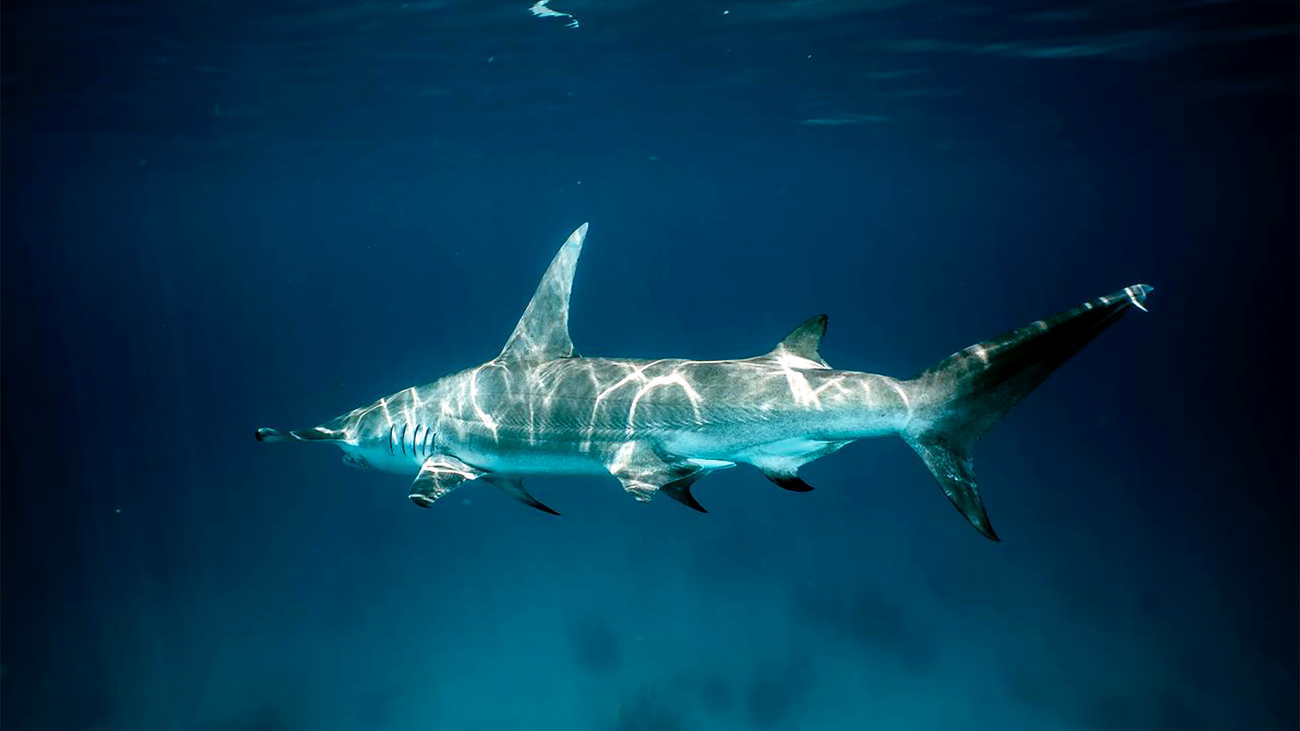New report spotlights Latin America and Caribbean’s role in shark trade
New report spotlights Latin America and Caribbean’s role in shark trade

(Washington D.C., 9 July 2024) — The Latin American region is a consistent source of shark fin products, feeding the overwhelming demand in Asian markets, according to a new report released today by IFAW. But in a surprising twist, the analysis of 17 years of customs trade data also shows the region to be the main consumer of shark meat exported from Asian trade hubs.
The report, Meat on the menu and fins for exports: Latin America’s shark trade with Asia, reviews shark trade data from countries across the Latin America and Caribbean (LAC) region, as reported by Asian trade hubs. This includes Hong Kong SAR, Taiwan province, and Singapore. The analysis aims to help governments in the LAC region enhance their capacities to understand, monitor, and regulate shark trade.
“Global demand for shark products has exploded in recent decades pushing many sharks to the brink of extinction” said Barbara Slee, senior program manager at IFAW. “Mapping trade flows and weeding out discrepancies will help build a clearer picture of the global shark trade so that these countries can better protect them. Sharks are essential to a healthy ocean ecosystem – but they are in troubled waters.”
Different regions play an active role in the global shark trade, supplying Asian markets with shark fins, receiving shark meat for domestic consumption, facilitating the transit of export, or by profiting through international fishing fleets.
Between 2003–2020, the LAC region was found to be a key shark meat consumer receiving 58% of the total shark meat exports from Hong Kong SAR, Singapore and Taiwan province. Uruguay, Brazil, and Mexico are the top destinations; the three countries alone account for nearly all the shark meat flowing into Latin America.
The LAC region is also a consistent source of shark fin products for the Asian trade hubs. A staggering total of 188,369 metric tons of shark-fin products were imported into the Asian trade hubs between 2003-2020, of which approximately 30,000 metric tons (16%) originating from the LAC region. Costa Rica was the largest supplier, followed by Peru, Uruguay and Mexico.
The analysis also reveals alarming discrepancies in trade data. For example, the figure for Hong Kong SAR’s imports of shark products from Peru was more than one hundred times greater than Peru’s reported exports.
“Given the global scale of shark trade, and the multitude of trading partners, countries/territories need to proactively work together to share data, standardise reporting formats, and improve the quality of the data collected,” said Stan Shea from BLOOM Association, co-author of the report. “This is required to bring the level of transparency and traceability to where it needs to be for a trade as complex and potentially detrimental as the shark trade.”
In 2022, member governments of the Convention on International Trade in Endangered Species (CITES) voted to give an additional 97 shark species greater protection via an Appendix II listing. Together with already listed species, more than 90% of the global fin trade is now under CITES control. To avoid CITES sanctions, including potential trade suspensions, the report recommends countries must rapidly improve their efforts to control the shark trade, improve data recording and analysis, strengthen cooperation between key trading partners, and clamp down on illegal trade.
The report’s launch comes ahead of a key CITES meeting in Geneva, 12-19 July, which will examine concerns around the sustainability of shark trade by several CITES member governments. At a meeting of the CITES Standing Committee in November, governments sanctioned Ecuador for its failure to control shark trade.
NOTES
- IFAW continues to support governments at their request with implementation of CITES regulations and supporting enforcement efforts:
- In September 2023, IFAW organised a CITES workshop in Panama for the government to determine for which shark species the trade needs to be restricted to ensure continued trade does not have a detrimental effect on shark populations.
- In December 2023, IFAW organised a shark fin identification workshop for Colombian enforcement authorities to build national capacity for the identification of confiscated shark fins and to further the understanding of the scale, key players, routes, and patterns in the fight against illegal trade in sharks.
- This latest report is the third in a series looking at global shark trade. The previous reports are:
- Supply and Demand: The EU’s role in the global shark trade (March 2022) – Bloom Association Hong Kong in collaboration with IFAW, undertook an extensive analysis of official raw customs data of Hong Kong SAR, Singapore, and China’s Taiwan province and publish the findings in the report, demonstrating that the EU is one of the top sources of shark fin products for these Asian markets.
- Shark safeguards: Elevating EU controls on shark trade (September 2023), giving more insights into the legal and illegal trade flows by looking at both the legal trade data as reported by the EU, covering import into and export by the EU 27 Member States to all countries worldwide, and also illegal trade data as registered by the Member States. The study illustrated the economic value of the trade and the dominant trade flows by identifying the main suppliers and export destinations.
Related content
every problem has a solution, every solution needs support.
The problems we face are urgent, complicated, and resistant to change. Real solutions demand creativity, hard work, and involvement from people like you.